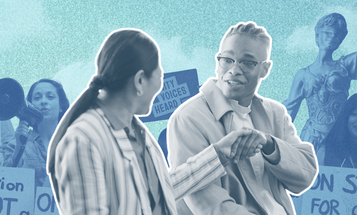
Demos: Supreme Court Nominee Brett Kavanaugh Has Troubling Record on Racial Equity and Civil Rights
Chiraag Bains, the Director of Legal Strategies for Demos, issued the following statement tonight in response to the nomination of Brett Kavanaugh to the U.S. Supreme Court by President Trump:
“With the nomination of Brett Kavanaugh, Donald Trump’s second nominee to the Supreme Court in less than two years, the stakes couldn’t be higher for individuals and families whose lives are directly impacted by the Court’s decisions.
“Judge Kavanaugh’s record on the most central legal questions of our time raises grave questions about whether he will ensure the equality and dignity of all Americans, including people of color and working-class individuals. He voted to allow a restrictive voter ID law to go into effect in South Carolina, to prevent an undocumented minor in immigration custody from obtaining an abortion, and to undermine the Consumer Financial Protection Bureau. He joined in the watershed opinion that created Super PACs. And he has written that the president should not be subject to criminal investigations while in office.
“The next justice will confront legal questions that go to the heart of our democracy, including the influence of big money in politics and the use of restrictions on the right to vote and other tactics that weaken the influence of voters of color.
“As President Trump continues to advance racially unjust and divisive policies that threaten our nation’s core values of fairness and equality, it is the responsibility of the Supreme Court to serve as a backstop, not an enabler. The American people need an independent Supreme Court that will put politics and ideology aside and ensure that constitutional protections for all people are upheld.
“With so much at stake, it is crucial that all Americans closely scrutinize Judge Kavanaugh’s record on racial equity, and that the Senate not move forward unless and until the American people can be sure that the nominee will advance the rights of Americans who most depend on the courts for protection—people of color, women, immigrants, and working-class people—and not simply the wealthy and powerful.”
Background:
Justice Kennedy provided the deciding vote in key decisions preserving the promise of the law as a tool for bringing about racial justice. He wrote the Court’s decisions narrowly upholding affirmative action in higher education and holding that the Fair Housing Act prohibits housing restrictions that have an unjustified disparate impact based on race, not just conduct that is intentionally discriminatory. Both of these decisions are at risk if a new Trump appointee joins the Justices who have not hesitated to overrule established precedents.
Supreme Court decisions on critical matters facing the court will have profound consequences for racial equity. A fifth vote to overturn Roe v. Wade will disproportionately hurt low-income women and women of color, leaving them without options while women with means can drive across state or national borders to get an abortion. A fifth vote to kill the Affordable Care Act will hurt Americans who benefit from the Medicaid expansion and the ban on preexisting conditions hardest.
There is growing support on the Supreme Court for gutting what’s left of our civil rights laws. Just this past term, Justices Gorsuch and Thomas wrote that they believe the Voting Rights Act should not protect against race-based gerrymandering. Five votes for that position would upend voting rights law. Meanwhile, in Citizens United and other cases, the Court has been steadily increasing the influence of corporations and wealthy individuals to skew elections and drown out the voices of working-class people and communities of color.
Demos is committed to reviewing Judge Kavanaugh’s record in further detail in the coming days.



